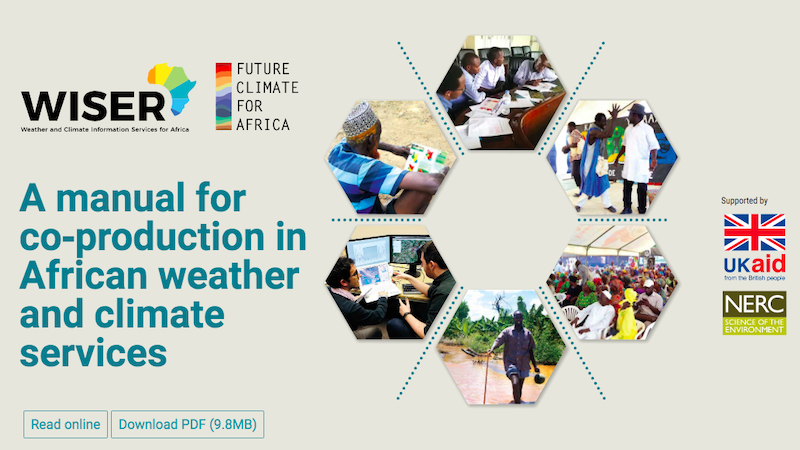Agriculture is the bedrock of the economy in a country like Malawi in southern Africa.
It is one of the most important sectors driving the country’s gross domestic product. At a household level, home grown food is also central to many families’ ability to ward off hunger and malnutrition. A healthy agricultural sector needs ample water.
The country’s main energy source is also water dependent, with most of Malawi’s electricity coming from hydro-power in Lake Malawi.
At the same time, as the country’s population grows, so does the pressure on its water resources.
These competing needs are what scientists like associate professor Katharine Vincent call the water-food-energy ‘nexus’. Rising global temperatures and changing rainfall patterns in this region of Africa will increase the uncertainty in the area of water management.
Vincent is a geographer with the South African-based environmental consultancy firm Kulima Integrated Development Solutions and a visiting associate professor with the University of Witwatersrand in Johannesburg. She has been working with the UMFULA research consortium part of the Future Climate for Africa (FCFA) programme, a cross-disciplinary programme aimed at supporting policy makers within different spheres of government in their regions to help draw climate information into policy making and planning. Part of the UMFULA process was to help produce policy-relevant scientific information that could help countries make better long-term plans, with climate change in mind.
“Malawi has a number of pressing development needs, and many in the agriculture sector focus on current issues of what will happen in the next agricultural cycle,” explains Vincent. “The climate change modelling we produced through UMFULA takes a look at longer timeframes, from up to 2040 and 2100.”
This kind of climate information can inform medium and long-term development plans, which are spearheaded in Malawi by the country’s new National Planning Commission, and includes water as a central issue around which longer-term decisions need to be made.
However, producing robust climate science wasn’t the only important outcome of the project, explains Vincent. Equally important was the process of creating the information and the capacity building inherent in that process.
The Co-production in African weather and climate services manual, published by FCFA and WISER (Weather and Climate Information Services in Africa) is an attempt to address the growing interest in the region for the process of jointly creating useful and relevant climate information.
“Climate information often isn’t user friendly. FCFA is interested in bridging the gap between the scientific researchers and academics in the field of climate change, and the policy makers and practitioners who use that information,” explains Vincent.
A key part of that knowledge generation is the co-production process, which brings together different parties and stakeholders to jointly create this knowledge.
“This manual explains the processes we went through in order to do so.”
The manual draws in the lessons learned from various FCFA projects, and other related programmes, across sub-Saharan Africa. Through 18 regional case studies, it demonstrates the principles and practical recommendations needed to help guide co-production projects and processes, the authors of the manual say.
“[It] is intended to support those involved in co-production, particularly those who are facilitating a co-production-centred project or a co-production process, ranging from the academic [and] practitioner project manager to national meteorological services and government officials wanting to integrate co-production principles into their own work processes.”
The Malawi water-food-energy nexus research that Vincent contributed to is one of the examples featured in the manual.
The process of co-producing information involved bringing together many different parties, such as various government departments, weather services, agricultural services, and academics and researchers. These are groups that might otherwise not work together normally, and who might have different processes and incentives.
“Co-producing climate information is an interactive process, where we learn and adapt as we go. One of the most important things we learned in this process, is that climate scientists don’t speak the same language as policy makers. We often forget that we use a lot of scientific jargon which non-scientists don’t understand,” says Vincent.
Working together, the scientists and researchers realised they needed to change the way they speak about the scientific content.
“We’ve tried to capture this in the manual so that others don’t have to go through the same trial and error if they want to follow similar processes.”
The water levels in Lake Malawi have always fluctuated according to the seasons and the outflow of the river. The different climate models which UMFULA scientists use to project how much the amount of water flowing out of the lake will change in future also give a lot of uncertainty, which can be hard for policy makers to understand and use in their planning processes.
“This kind of co-production allows us to work with policy makers so that they can draw up a range of decision options for their longer-term water management planning.”
The Co-production in African weather and climate service manual is available as a digital book or to download from the FCFA website.
The work reported on in this story is part of Future Climate for Africa’s UMFULA (Uncertainty Reduction in Models for Understanding Development Applications) research consortium. It aims to advance scientific knowledge about regional climate responses to human activities and work with decision-makers to integrate this knowledge into climate-sensitive decisions in central and southern Africa, with a particular focus on Tanzania and Malawi.
This article was written by Leonie Joubert and is part of a series that highlights the co-production case studies from the FCFA research consortia.
This post was sponsored by Future Climate for Africa. See our editorial guidelines for what this means.
